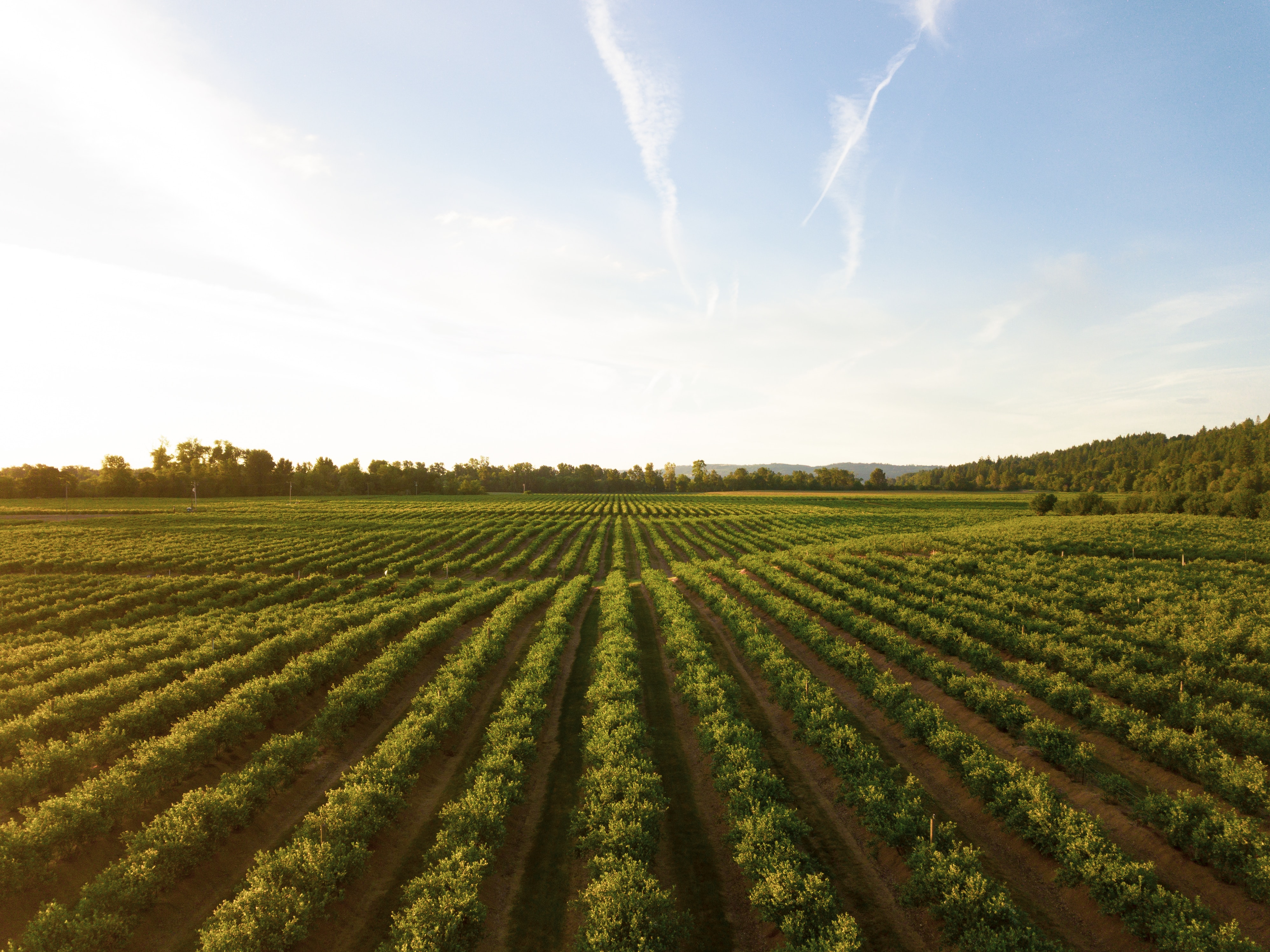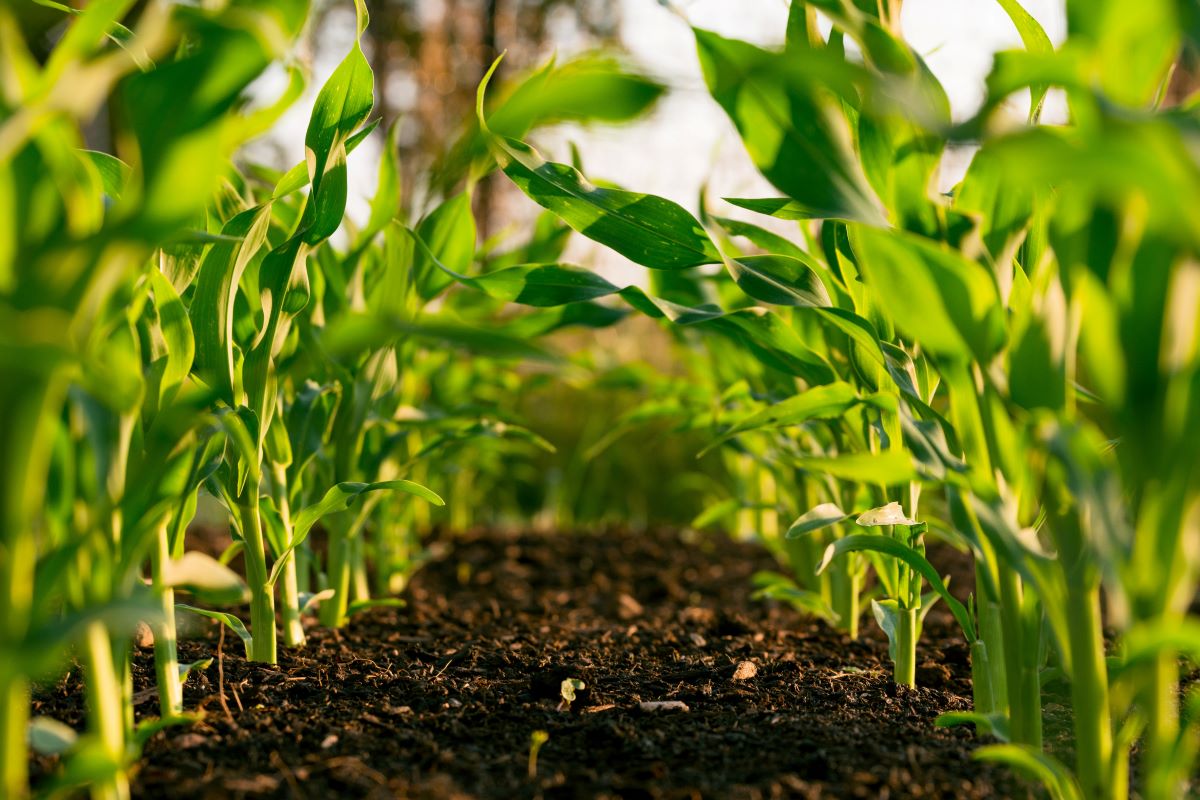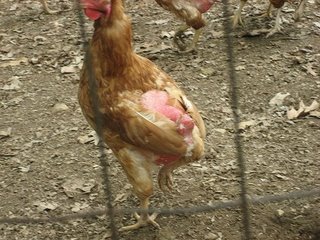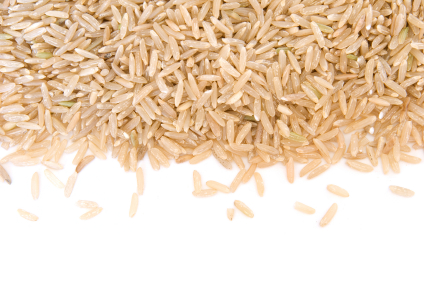Table of Contents
With the escalating concern over environmental health and sustainability, a growing interest in diets minimizing environmental impact is growing. Among these, veganism has garnered significant attention. By eliminating animal products, including meat and dairy products, vegans aim to establish a health-conscious and environmentally responsible diet.
The environmental aspect of veganism stems from the recognition that the production of animal foods is associated with substantial ecological impacts. These include significant greenhouse gas emissions, extensive land use, massive water use, and widespread water and soil pollution.
The Environmental Protection Agency (EPA) categorizes agriculture as a primary source of pollution in roughly half of the total impaired river and stream miles in the United States. A considerable proportion of this pollution is attributed to animal agriculture, stemming from animal wastes, antibiotics, and hormones entering water bodies and the degradation of aquatic ecosystems.
This article will delve into the environmental impacts of a vegan diet. Specifically, it will shed light on how such a diet can help alleviate many ecological concerns. It will leverage scientific studies, reports, and data from reputable institutions to provide an objective analysis.
It aims to facilitate an understanding of the potential of vegan diets to mitigate environmental degradation, thereby contributing to the broader conversation around sustainable food systems.
The Environmental Basis of Veganism
Embracing a vegan diet is more than just a food-based choice; it’s step towards environmental responsibility. At its core, veganism embraces the understanding that our dietary decisions have profound consequences for the planet. By embracing a vegan lifestyle, we can reduce the strain on natural resources, and minimize our ecological footprint.

Animal agriculture uses approximately
83% of the world’s farmland.
Switching from animal-based to plant-based diets could reduce the amount of land used for food production by 76%.
University of Oxford, 2018, Vol 360, Issue 6392, pp. 987-992,
DOI: 10.1126/science.aaq0216
Resource Use
Resource use efficiency is a crucial factor to consider when assessing the environmental impact of diets. This involves evaluating the land, water, and other resources required to produce our food. Animal agriculture, which includes rearing animals for meat, dairy, and other animal-based products, is resource-intensive.
Land and Water Requirements of Animal Agriculture
Most of the world’s agricultural land is currently utilized for animal agriculture. According to a study published by researchers from the University of Oxford, animal agriculture uses approximately 83% of the world’s farmland.
This land is used for animal husbandry, including pastures for grazing and land for producing animal feed. However, despite its extensive land use, animal agriculture contributes just 18% to the world’s calories, illustrating an imbalance in the land use efficiency of producing animal foods compared to plant-based foods.
An Italian study corroborated this discrepancy. It highlighted that producing 1 kg of animal protein requires about 6 to 20 times more land than having 1 kg of grain protein. Moreover, the loss of native vegetation to animal agriculture is causing significant biodiversity decline and increased soil erosion.
Water use in animal agriculture is another significant environmental concern. It’s not just the water that animals drink that matters, but also the water used in growing animal feed and processing animal products.
A report by the Water Footprint Network highlighted that producing one pound of beef in the United States can require over 1,800 gallons of water when you consider the water needs of the entire production process. In contrast, growing plant-based foods generally require significantly less water.
Moreover, the type of water use associated with animal agriculture tends to be more harmful than that associated with crop production. The water used in livestock farming is mainly consumptive, meaning it is removed from its source without being returned.
Comparison to the Efficiency of Plant-Based Food Production
In contrast to the high resource use of animal agriculture, producing plant-based foods is generally much more efficient. A comprehensive study by the University of Oxford found that switching from animal-based to plant-based diets could reduce the amount of land used for food production by 76%.
This is largely because plants require fewer resources to grow than those needed to raise animals, considering that many crops are used as animal feed.
Moreover, shifting to plant-based diets can drastically reduce water use. According to a study from the University of Twente in the Netherlands, a meat-based diet requires nearly five times more than a vegan diet.
By prioritizing plant-based foods, vegan diets thus present an opportunity for more sustainable water use in the context of global concerns about water scarcity.
There is also the issue of water pollution caused by animal agriculture. The large volumes of manure and other waste produced by livestock operations often contain harmful substances, including heavy metals, hormones, antibiotics, and pathogens, which can contaminate water resources.
In addition, using synthetic fertilizers and pesticides for growing animal feed crops can lead to nutrient run-off, causing eutrophication of water bodies, which results in algal blooms and dead zones where aquatic life cannot survive. A vegan diet helps reduce these water pollution forms by eliminating the demand for animal products.
Given the impending threats of water scarcity in many regions worldwide, attributed to population growth, economic expansion, and climate change, adopting water-efficient dietary habits can become essential to ensure global water security.
In the next section, we’ll explore another critical aspect of the environmental impact of diets – greenhouse gas emissions.
Greenhouse Gas Emissions
There are direct emissions from the digestive processes of ruminants (like cows, goats, and sheep), known as enteric fermentation. This results in the release of methane, a potent greenhouse gas.
Second, there are emissions related to the production and transportation of feed for livestock, which often involve using fossil fuels. Furthermore, the processing and transportation of animal products to market also contribute to emissions. The environmental cost, therefore, extends far beyond the farm gates.
Contribution of Livestock Agriculture to Climate Change
According to a United Nations Food and Agriculture Organization report, livestock agriculture accounts for about 14.5% of global greenhouse gas emissions. This includes carbon dioxide from deforestation for pastures and animal feed crops, methane emissions from ruminant digestion, and nitrous oxide emissions from manure.
Factory farms, in particular, have been identified as significant contributors to greenhouse gas emissions. These farms often house thousands of animals in confined spaces, leading to large quantities of manure. When this manure decomposes, it releases potent greenhouse gases, notably methane, with a global warming potential 28 to 36 times higher than carbon dioxide over a hundred years.
Factory farming is also associated with other environmental issues contributing to climate change. One of these is the overuse and misuse of antibiotics, joined in factory farming, to prevent diseases in densely packed animals.
The Role of Plant-Based Diets in Reducing Carbon Footprint
Several studies have demonstrated that plant-based diets result in lower greenhouse gas emissions than diets rich in animal products. For instance, a study from the University of Michigan found that the average carbon footprint of a vegan diet is about half that of a diet that includes meat.
The study also revealed that even the least eco-friendly plant-based foods are responsible for less greenhouse gas emissions than the most sustainable animal products.
Additionally, research from the University of Oxford found that a global shift to vegan diets could reduce food-related carbon dioxide emissions by 70%. This illustrates the potential of vegan diets in mitigating the impacts of climate change.
Not only do vegan diets contribute fewer direct emissions, but they can also help to sequester carbon in agricultural soils. This is because plant-based agriculture requires less intensive land use and can often support more biodiverse and perennial plant species, which can absorb and store more carbon in their biomass and the soil.
Environmental Benefits of a Vegan Diet
Veganism, as a lifestyle that completely avoids the use of animal products, can have considerable environmental benefits. By focusing on plant-based foods, a vegan diet can contribute to more sustainable resource use, reduced deforestation, and the promotion of sustainable food systems.

By switching to a vegan diet, an individual can save approximately 1,100 gallons of water per day.
International Water Management Institute (IWMI), IWMI Report
Lowering Water Usage
Water is a precious resource. With water scarcity and pollution posing severe environmental and public health concerns, how our diets influence water usage is increasingly crucial.
The Water Footprint of Plant-Based Foods Compared to Animal-Based Foods
Animal-based foods tend to have a larger water footprint than plant-based foods. This is due to the high water requirements of producing animal feed and managing livestock. For instance, the Environmental Protection Agency (EPA) states that creating a single pound of beef takes roughly 2,400 gallons of water.
On the other hand, producing a pound of tofu, a plant-based protein source, requires only about 302 gallons of water, according to a study published in Environmental Research Letters.
Reducing the Strain on Global Water Resources Through Veganism
Adopting a vegan diet can significantly reduce individual water footprints. By switching to a vegan diet, an individual can save approximately 1,100 gallons of water per day, according to a report by the University of Twente.
Reducing Deforestation and Habitat Loss
Another critical environmental issue is deforestation, driven by the demand for agricultural land for animal husbandry and feed production. This land use change has significant consequences for biodiversity and ecosystems.
The Impact of Animal Agriculture on Land Use and Biodiversity
Animal agriculture is a leading driver of deforestation and habitat loss. The World Wildlife Fund estimates that nearly 80% of land deforestation in the Amazon rainforest, for instance, is due to pasture creation for cattle ranching.
Furthermore, land used for growing animal feed, such as soy, contributes significantly to habitat loss and species extinction.
The Potential for Vegan Diets to Help Alleviate Deforestation and Species Extinction
Switching to a vegan diet could significantly reduce the demand for agricultural land and deforestation.
According to a study in the journal Science, if everyone adopted a vegan diet, global farmland use could be reduced by more than 75%, an area equivalent to the size of the United States, China, Australia, and the EU combined. This would not only preserve native vegetation but also protect numerous species from habitat loss.
Supporting Sustainable Food Systems
Veganism can also contribute to more sustainable food systems, promoting practices that are less harmful to the environment and more resilient to change.
The Role of Veganism in Promoting Circular and Regenerative Agriculture
Circular and regenerative agriculture aims to replenish the resources used in food production rather than deplete them. They focus on recycling nutrients and improving soil health, which plant-based diets can support.
Plant-Based Diets as a Key Component of Sustainable Solutions
Plant-based diets are considered a key component of many proposed solutions to environmental challenges. The EAT-Lancet Commission, a collaboration of 37 leading scientists from around the world, suggested in a comprehensive report that a significant shift towards plant-based diets could drastically reduce food production’s environmental impacts while improving human health outcomes.
Counterarguments and Criticisms
While the environmental benefits of veganism are significant, it’s essential to consider some of the criticisms and potential downsides associated with this diet. These range from concerns about nutrient availability and health outcomes to the environmental impacts of monoculture and large-scale industrial agriculture.
Nutrient Availability and Health Concerns
A common concern related to vegan diets involves the availability of certain essential nutrients commonly found in animal products.
Essential Nutrients Found in Animal Products
Animal products are rich sources of nutrients like vitamin B12, iron, calcium, iodine, and essential fatty acids. These nutrients are crucial for optimal health. For instance, vitamin B12 is necessary for nerve function and the production of red blood cells, while omega-3 fatty acids are essential for heart and brain health.
The Necessity of Supplementation or Careful Dietary Planning for Vegans
Vegans can get most of these nutrients from plant or fortified foods, but careful dietary planning or supplementation may sometimes be necessary. For instance, Vitamin B12 is typically obtained from animal products, but vegans can get it from B12-fortified foods or supplements.
This doesn’t negate the environmental benefits of a vegan diet, but it does highlight the importance of considering nutritional needs in diet choices.
Impact of Monoculture and Industrial Agriculture
Veganism can also be criticized from an environmental perspective, particularly when considering the impacts of monoculture and industrial farming practices commonly used in plant-based food production.
Criticisms of Large-Scale Plant-Based Food Production
Large-scale farming, often used to grow crops like soy and corn, can cause environmental damage, including soil erosion, water pollution, and biodiversity loss. These crops, mainly when grown as monocultures, can have a high ecological cost, despite being plant-based.
The Role of Sustainable and Diverse Farming Practices in Supporting Veganism
A vegan diet can be more sustainable when it includes various plant-based foods and supports sustainable farming practices. This means favoring foods grown with minimal chemical fertilizers and pesticides and on farms promoting biodiversity and healthy soils.
Organic, permaculture, and agroforestry systems can effectively produce plant-based foods with less environmental harm.
The Importance of Local and Seasonal Eating
Another critical point in the discussion about diet’s environmental impact is the concept of local and seasonal eating.
Food Miles and the Environmental Impact of Transportation
Transportation of food contributes to greenhouse gas emissions. So, consuming foods grown or produced far away, even plant-based, can have a substantial carbon footprint due to the ‘food miles’ associated with their transportation.
Balancing Veganism with Supporting Local Food Systems and Rural Communities
Balancing a vegan diet to support local food systems and rural communities is also essential. Whether plant-based or not, consuming locally-produced foods helps local economies and often produces fresher, less processed food.
This isn’t a critique of veganism per se, but a reminder that the environmental impact of our diets is influenced by more than just the types of foods we eat. In the next section, we will delve into the research findings surrounding the environmental impacts of veganism.
The Future of Environmentally Conscious Eating and Veganism
The shift towards a more environmentally conscious approach to eating, epitomized by veganism and plant-based diets, is shaped by multiple factors. These range from trends in food production to growing public awareness and advocacy to shifts in policy and regulation.

A plant-based burger requires 99% less water and 93% less land while producing 90% fewer greenhouse gas emissions than a conventional beef burger.
Heller, Martin C. and Gregory A. Keoleian. (2018) “Beyond Meat’s Beyond Burger Life Cycle Assessment: A detailed comparison between a plant-based and an animal-based protein source.” CSS Report, University of Michigan: Ann Arbor 1-38.
Emerging Trends in Food Production
Innovations in food production are creating new opportunities to reduce the environmental impacts of our dietary choices.
Plant-Based and Lab-Grown Alternatives to Animal Products
One major trend is the rise of plant-based and lab-grown alternatives to animal products. These innovations aim to replicate the taste and texture of meat, dairy, and other animal products using plant ingredients or cell culture technology. Notably, these alternatives tend to have a lower environmental impact than traditional animal products.
For instance, a study from the University of Michigan found that producing a plant-based burger requires 99% less water and 93% less land while producing 90% fewer greenhouse gas emissions than a conventional beef burger.
The Potential for a More Environmentally Sustainable Food System
We may move towards a more environmentally sustainable food system with these emerging food technologies. Such a system would use less water, generate fewer greenhouse gas emissions, and reduce the strain on arable land compared to our current system.
Public Awareness and Activism
Consumer attitudes and behavior changes also drive the shift towards more environmentally responsible eating.
The Increasing Popularity of Veganism and Plant-Based Diets
Veganism and plant-based diets are becoming more popular as more people become aware of the environmental, health, and animal welfare benefits. This shift is being reinforced by societal trends such as the rise of ‘flexitarian’ diets, which aim to reduce meat consumption without eliminating it.
The Role of Advocates in Promoting Environmentally Responsible Food Choices
Activists, influencers, and advocacy groups are crucial in promoting veganism and plant-based diets. By raising awareness about the environmental impacts of diet and encouraging people to consider them in their food choices, they are helping to drive demand for more sustainable food options.
The Role of Policy and Regulation
Policy and regulation are also crucial in promoting environmentally conscious eating and supporting the shift towards veganism and plant-based diets.
Existing Policies Supporting Sustainable Agriculture and Plant-Based Alternatives
Governments and regulatory bodies in many parts of the world are starting to recognize the importance of supporting sustainable agriculture and promoting plant-based alternatives.
For instance, the European Union’s Farm to Fork Strategy aims to transition to a fair, healthy, and environmentally friendly food system, promoting organic farming and reducing meat consumption.
The Potential for Stronger Regulations to Protect the Environment and Public Health
Stronger regulations have the potential to play a crucial role in protecting the environment and public health, particularly in the context of promoting environmentally conscious eating.
By implementing and enforcing appropriate policies and regulations, governments can create a framework that encourages sustainable practices while discouraging high-emitting food production methods.
Here are a few ways in which stronger laws can be effective:
- Discouraging high-emitting food production methods: Regulations can be put in place to discourage or penalize agricultural practices that contribute to high levels of greenhouse gas emissions, such as excessive use of synthetic fertilizers, deforestation for agricultural expansion, or inefficient livestock farming methods. By imposing limits or taxes on emissions, governments can create economic incentives for producers to adopt more environmentally friendly practices.
- Supporting sustainable farming practices: Regulations can promote sustainable farming methods, such as organic farming, precision agriculture, and agroecology. These practices focus on reducing chemical inputs, improving soil health, and optimizing resource use. Governments can encourage a shift towards more environmentally friendly agricultural systems by providing subsidies, technical assistance, or tax incentives for adopting sustainable farming practices.
- Incentivizing plant-based alternatives: Regulations can also play a role in promoting the development and consumption of plant-based alternatives to animal products. This can involve labeling requirements to improve transparency and facilitate informed choices, tax incentives for plant-based food producers, or restrictions on marketing practices that promote unhealthy or environmentally harmful food products.
- Improving food labeling and transparency: Stronger regulations can enforce accurate and informative food labeling, ensuring that consumers have access to relevant information about the environmental impact of different food products. This can include carbon footprint labeling, indicating the emissions associated with producing a particular food item, or certifications that verify sustainable farming practices.
- Enhancing waste management and reduction: Regulations can address food waste by encouraging businesses and consumers to reduce, recycle, and properly manage food waste. This can include requirements for food businesses to track and report their waste, initiatives to redistribute surplus food to those in need, and policies that encourage composting or anaerobic digestion to reduce methane emissions from food waste in landfills.
FAQ
How does a vegan diet help reduce greenhouse gas emissions?
Animal agriculture significantly contributes to greenhouse gas emissions, mainly through methane and nitrous oxide. By eliminating animal-based foods, vegans can help lower their carbon footprint and contribute to reducing their impact on climate change.
How does a vegan diet conserve water resources?
Animal agriculture requires vast amounts of water for raising livestock and growing feed for the animals. A vegan diet relies primarily on plant-based foods, helping to conserve water resources.
How does a vegan diet help conserve biodiversity?
Vegan diets eliminate the demand for animal based products and alleviates various pressures on ecosystems. By decreasing demand for animal agriculture, we can help preserve natural habitats and protect various plant and animal species.
How does a vegan diet affect freshwater pollution?
Animal Agriculture can result in water pollution due to the runoff of manure and various chemicals. By eliminating the need for animal products, a vegan diet can help decrease the pollution of freshwater sources.








